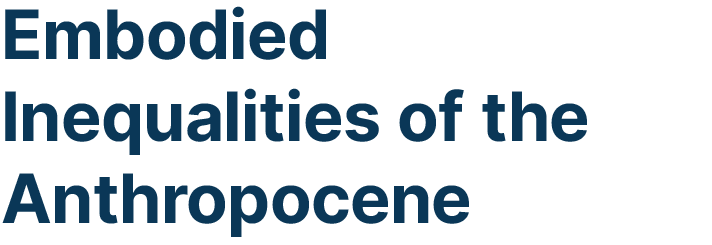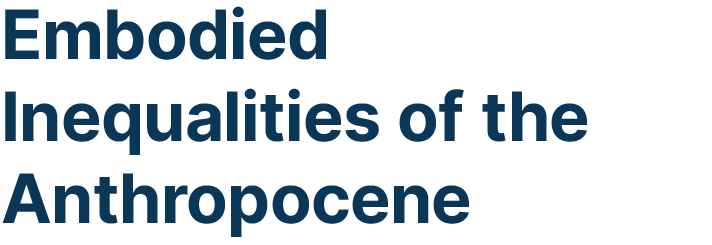EIA Research Themes
Embodied Inequalities of the Anthropocene speaks to the global and transnational legacies of exploitation, extraction and genocide and how racism, coloniality and gender are central to the embodiment of Anthropocene inequities.
Our project addresses 5 key themes. Hover over each theme to find out more.



